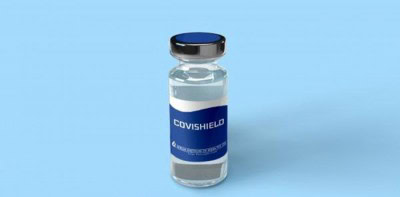By Ashish Srivastava
New Delhi, Jan 4 : The Serum Institute of India (SII) clarified on Monday that the company is yet to receive the permission from the authority here to export its Covid-19 vaccine to other nations, the company official told IANS.
The clarification has come after it was reported in the media that India has barred the company from exporting its vaccine for several months.
However, IANS was told that the permission has not yet been granted for exporting the vaccine.
The company, whose Covid-19 vaccine ‘Covishield’, which is developed from the master seed of AstraZeneca/Oxford Covid vaccine, received emergency authorisation approval in the country by Drug Controller General of India (DCGI) on Sunday.
The same day, the company was granted the permission to manufacture its vaccine by the DCGI.
Adar Poonawalla, SII’s CEO was reported saying that ‘the company received the emergency authorisation approval on the condition that it doesn’t export the shots to ensure that vulnerable populations in India are protected’.
He also said the Serum Institute was in the process of signing a larger contract with Covax for 300 million-400 million doses of the vaccine. That is apart from the two existing orders of 100 million doses each for the vaccine developed by Oxford University and AstraZeneca, and another one from Novovax. He said the deal would be finalised in the coming weeks.
IANS has sent a query regarding the company’s application to receive the licence to export and the orders placed till now from the other nations.
Commenting on Poonawaala’s statement reported in the media, Dr. Soumyadeep Bhaumik, public health expert at the George Institute for Global Health, said that for now, it is a reasonable policy from the government to protect our own citizens.
“Considering the context in which high-income countries have already stocked the vaccine doses which is way more than the requirement of their population, I think it’s a reasonable policy to protect our own citizens first. We need to have our own health security first before we look for other aspects,” he said.
However, Bhaumik also added that the Centre must revisit the policy when the production of the vaccine reaches a satisfactory level.
“As of now it makes sense when no vaccines are being made. However, when productions are scaled up, this policy must be revisited. We must recognise that we are not safe until our neighbours and other lower-middle-income countries are safe as well,” he said.
Disclaimer: This story is auto-generated from IANS service.

